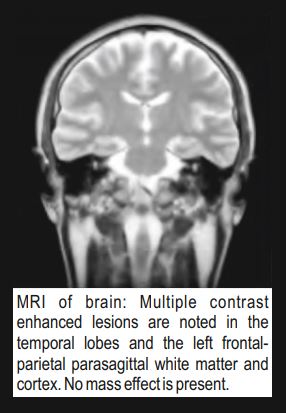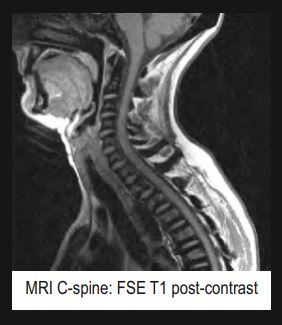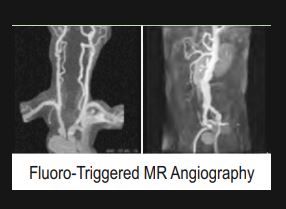Most trusted and dependable
GADOPENTETATE DIMEGLUMINE INJECTION USP
A Paramagnetic contrast medium for use in MRI
- Excellent in VIVO stability
- (Gadolinium ion forms a stable complex with DTPA which is intensely hydrophilic) :
- Suitable for all age groups including neonates & elderly patients.
- Safe at high doses even in patients with impaired renal function :
- No significant changes in Blood pressure, pulse rate or ECG.
- Offers unsurpassed safety & efficacy :
- Clinical experience extended to over 45 million procedures in more than 100 countries.
- Facilitates accurate diagnosis :
- Optimises patient management.
- Broadest indications :
- Convenience of use.
| PRODUCT | CNS BRAIN & SPINE | HEAD & NECK | BODY | |||
|---|---|---|---|---|---|---|
| PRODUCT | BRAIN | CNS & SPINE | HEAD | & NECK | BODY # | |
| ADULT | PAEDIATRIC* | ADULT | PAEDIATRIC* | ADULT | PAEDIATRIC* | |
| IOGADO | ||||||
| GADODIAMIDE | ||||||
| GADOTERIDOL | ||||||
| GADOVERSETAMIDE | Liver only |
# Excluding Heart
* Paediatric: 2 year of age and older
Magnascan offers broadest range of Adult & Paediatric Clinical Indications (CNS, HEAD, NECK & BODY
| COMPOSITION | IOGADO 10ml | IOGADO 20ml |
|---|---|---|
| Contrast Medium Conc | 469 mg/ml | 469 mg/ml |
| Contrast Medium Content | 4.7 g | 9.4 g |
| pH | 6.5 - 8.0 | 6.5 - 8.0 |
| Viscosity (mPa*s) @ 37ºC |
2.9 | 2.9 |
| @ 20ºC | 4.9 | 4.9 |
| Osmolality (mOsm/ g H O) @ 37ºC |
1.96 | 1.96 |



COMPOSITION
Each ml Iogado injection contains 469 mg (0.5 mol/l) gadopentetic dimeglumine salt in aqueous solution.
INDICATIONS
Brain lesions MRI
Iogado is indicated in adults and children 2 years of age and older to provide contrast enhancement during magnetic resonance imaging (MRI) of intracranial lesions with abnormal vascularity or those suspected of causing an abnormality in the blood-brain barrier. Iogado enhanced MRI helps in the diagnosis and characterization of neoplastic disease, certain vascular abnormalities and certain demyelinating abnormalities (e.g., multiple sclerosis). Iogado is used in magnetic resonance (MR) studies to help differentiate changes that occur secondary to brain tumor resection (e.g., encephalomalacia, gliosis) or to postoperative irradiation or chemotherapy (e.g., edema, ischemia, demyelination, necrosis) from changes that represent residual or recurrent tumors to accurately assess treatment results. MRI with Iogado is particularly useful in patients with normal unenhanced studies who have central nervous system (CNS) symptoms, in patients with CNS tumors that are difficult to separate from surrounding edema and in patients who have undergone surgery to differentiate recurrence of the lesions from postoperative changes. In patients with suspected meningitis, Iogado enhanced MRI may be particularly useful in defining the active inflammatory process of the meninges and focal lesions.
Spinal lesions MRI
Iogado is indicated in adults and children 2 years of age and older to provide contrast enhancement and facilitate visualization of lesions in the spine and associated tissues. Iogado provides enhanced contrast of epidural abscesses, which makes it possible to differentiate them from adjacent compressed thecal sac. It facilitates the diagnosis of disk space infection and osteomyelitis. It helps localize portions of paraspinal masses most likely to yield a positive percutaneous biopsy and it helps distinguish active spinal infections from those that have responded adequately to antibiotic therapy. MRI with Iogado may be useful in differentiating postoperative epidural fibrosis (scar tissue) from recurrent disk herniation in patients with symptoms of failed back surgery syndrome to avoid unnecessary and possibly damaging reoperation if scar tissue is the cause.
Whole Body MRI
Iogado is indicated in adults to improve lesion contrast during MR body imaging (excluding the heart) in the evaluation of suspected hepatic lesions, endometrial or cervical carcinomas or pelvic masses, breast lesions (suspected or known), and musculoskeletal lesions. MRI of the breast is also used in patients with postoperative scarring and silicon implants to exclude or demonstrate malignancy, especially in patients with uncertain mammographic and/or clinical findings.
Cardiac MRI
Iogado enhanced MRI is used in the evaluation of patients with great vessel disease (e.g., aortic aneurysm, aortic dissection, congenital abnormalities, vena cava obstruction): in patients with ischemic cardiac disease to examine the heart for regions of wall thinning and intracardiac thrombus to assess chamber size, myocardial mass, wall motion, and wall thickening and to detect regions of wall thinning and intracardiac thrombus to assess chamber size, myocardial mass, wall motion, and wall thickening and to detect regions of acute infraction; and in patients with congenital heart disease to evaluate malrotations of the heart and for post-surgery assessment. Also, Iogado enhanced MRI helps in the assessment of coronary artery reperfusion after thrombolysis.
ADVERSE REACTIONS
Cardiovascular : hypotension, vasodilatation, pallor, phlebitis, nonspecic ECG changes, substernal pain, angina.
CNS : headache, dizziness, agitation, paresthesia, tinnitus, visual eld defect, convulsions, hyperesthesia.
Gastrointestinal : nausea, vomiting, gastrointestinal distress, stomach pain, thirst, increased salivation, taste abnormality
Respiratory : dry mouth, throat irritation, rhinorrhea, wheezing, sneezing, laryngismus, cough, dyspnea/apnea.
Cutaneous/Mucous Membranes : rash, sweating, urticaria, pruritus. Miscellaneous : injection site discomfort (coldness, burning, warmth, pain), toothache, generalized weakness, fever, localized edema, tiredness, anaphylactoid reactions (characterized by cardiovascular, respiratory and cutaneous symptoms), conjunctivitis.
PRECAUTIONS
General
Iogado is to be administered strictly by i.v. injection. It will cause tissue irritation and pain if administered extravascularly or if it leaks interstitially. A sweet taste may be experienced briefly by patients receiving a bolus injection Iogadoi.v.
Pregnancy / Reproduction Pregnancy
Adequate and well-controlled studies in humans have not been done. Although there is no evidence that the magnetic and electric fields associated with MRI have an effect on human development, in vitro studies and theoretical predictions raise concern regarding the risk of exposure to MR to the developing embryo and foetus. More studies are needed to establish the safety of MRI in pregnant patients.
Studies in rats with Iogado at doses 2.5 times and in rabbits at doses 7.5 & 12.5 times the human dose have shown that this agent causes slight retardation in development.
Breast-feeding
Problems in humans have not been documented. Since Iogado is distributed in small amounts into breast milk, temporary discontinuation of breast-feeding should be considered for at least 24 hours following its administration.
DOSAGE AND ADMINISTRATION
General instructions
- Patient should be on fast for at least 2 hrs before the examination.
- The drug is given as bolus injection and can be followed by contrast enhanced MRI.
- Iogado should not be drawn into the syringe until immediately before use. Any unused portion must be discarded on completion of the procedure.
- The patient should be in supine position while administering the injection and should be kept under supine position for at least half an hour after the injection.
- Do not use the solution if it is discoloured or if particulate matter is present.
- The imaging procedure should be completed within 1 hour since optimal contrast is generally observed in cranial investigations within 27 minutes following injection of Iogado and in spinal investigations during the early post administration phase (10 to 30 minutes). The following dosage guidelines apply to adults and children (above 2 years).
- Recommended Dose : 0.2 ml / kg b.w. (0.1 mmol / kg b.w.).
- Route of Administration : I.V. (into a large vein, if possible).
- Rate of Administration : 10 ml / minute or as a bolus injection at 10 ml / 15 seconds.
- Maximum Total Dose : 20 ml.
To ensure complete injection of the contrast medium the injection should be followed by a 5ml normal saline flush If strong clinical suspicion of an intracranial or intraspinal lesion persists despite a normal MRI scan the diagnostic yield of the examination may be increased by giving another injection of Iogado equivalent to the original total dose within 30 minutes and performing MRI again.
OVERDOSAGE
Systemic consequences of overdose with Magnascan have not been reported.
CONTRAINDICATIONS
- Iogado should not be administered to patients with known or suspected hypersensitivity to Gadopentetate Dimeglumine.
- Renal failure.
- Sickle cell anaemia.
STORAGE
Store at controlled room temperature. Do not freeze. Protect from direct sunlight. Inspect container for particulate matter before use. Discard unused portion.
PRESENTATION
MAGNASCAN: Single dose vials of 10ml and 20ml
